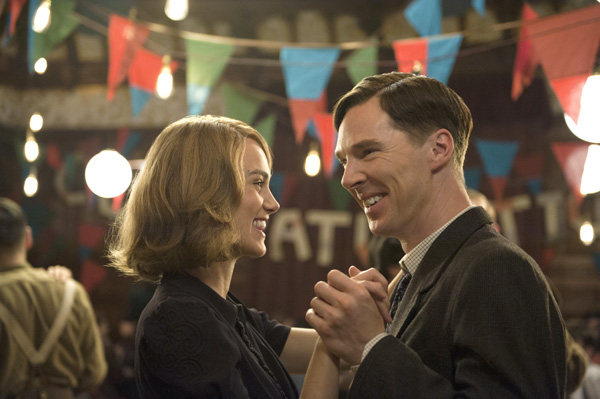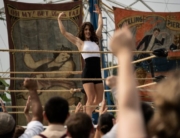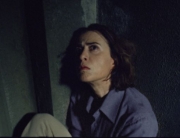For someone who has become as culturally ubiquitous as Benedict Cumberbatch, he hasn’t quite had that signature film role yet. Nearly 40 years old now, despite looking like he’s still in his 20s, he’s been a TV star as Sherlock Holmes and the first choice for fun supporting roles in sci-fi/fantasy blockbusters, but the definitive, Oscar worthy performance hasn’t been there. With the release of The Imitation Game, that all changes.
As the brilliant, heroic, but ultimately tragic mathematician and computation pioneer Alan Turing, Cumberbatch gets to do a little bit of everything. We haven’t seen him so vulnerable before, as he depicts the extreme loneliness and isolation coming from being a once-in-a-generation genius and a homosexual in a time when that was a crime.
Oddly, since he’s playing an Einstein-level mastermind, the one acting move he doesn’t flex as much as others is imperious intelligence. Turing seems like a perfect chance for Cumberbatch to dial-up his overwrought intellectual Holmes persona to 11, but this film is a study in how someone like Turing would actually fare in the real world. The humorously awkward failures at human interaction are highlighted, but there is real growth, too, as we see him figure out, slowly and painfully, how to relate to others he considers his intellectual inferiors (namely, everyone).
The film is divided into depictions of Turing’s boyhood, his postwar conviction for gross indecency, and his years serving the government by breaking the Nazi Enigma code. Appropriately, the war years take up the bulk of the narrative, and are the most engaging, but the other storylines are necessary biopic fodder.
The boyhood scenes effectively convey how a young homosexual in those days would be powerfully drawn to a secret code, as it is something out in the open for anyone to see but few know what it means. Turing was attracted to codes and puzzles from a young age, and had the cerebral gifts to solve the most difficult ever devised.
During the war, Turing is recruited into an elite group of Britain’s top linguists, mathematicians, and cryptographers by no-nonsense Commander Denniston (Charles Dance) to crack the allegedly unbreakable Nazi code. Despite being clearly the best mathematician in the country, Turing is so abrasive in his interview with Denniston that he nearly talks himself out of the job.
Turing is, of course, despised by the other members of the group, especially its leader, Hugh Alexander (Matthew Goode). Through some entertaining conniving, Turing goes over Denniston’s head and becomes the head of the unit, even securing 100,000 pounds to build his “Turing Machine.” His breakthrough was that, to defeat the machine the Nazis used to generate their code, which had 159,000,000 possible combinations, the British had to build another that could process that volume of data. Simply having a few very smart people stuck in a room writing equations on chalkboards was not going to cut it.
We could’ve stood to learn a lot more about the code and how Turing built his machine—we see him periodically turning knobs and fastening wiring. Additionally, the big eureka moment when he figures out how to program his proto-computer is a bit disappointingly obvious.
But The Imitation Game is not designed to give your brain too serious of a workout. It wears its intelligence shyly. It should, and could, have been much smarter. Instead, it’s more like costar Keira Knightley’s A Dangerous Method or the recent The Theory of Everything, a designedly accessible movie about intellectual pioneers, touching on their thinking only in the most dramatic, exciting ways, while bringing them down to the common viewer’s level to humanize them. The underlying idea is that geniuses are just like us. Why we need to think this, I don’t know, but it certainly isn’t true. Instead of bringing intellectual innovators down to our level, why not challenge us to bring ourselves up to theirs?
A large chunk of the film is given over to Turing’s relationship with mathematician Joan Clarke (Knightley), who, as a woman in a male-dominated field, faced similar hostility as Turing did as a homosexual. Knightley is probably better than ever, as are all the actors, especially when they are hot on the trail of breaking the coded riddle.
There were too many scenes set in pubs loaded with exposition—did the code breakers really have so much time to go out drinking and dancing? They most likely needed to blow off some steam, but it seemed like another attempt to demonstrate how regular they all were. When they take breaks from the bar and get down to business, though, the film makes the solving of calculations pulse with the intensity of being on the front line of the war.

















Leave A Comment